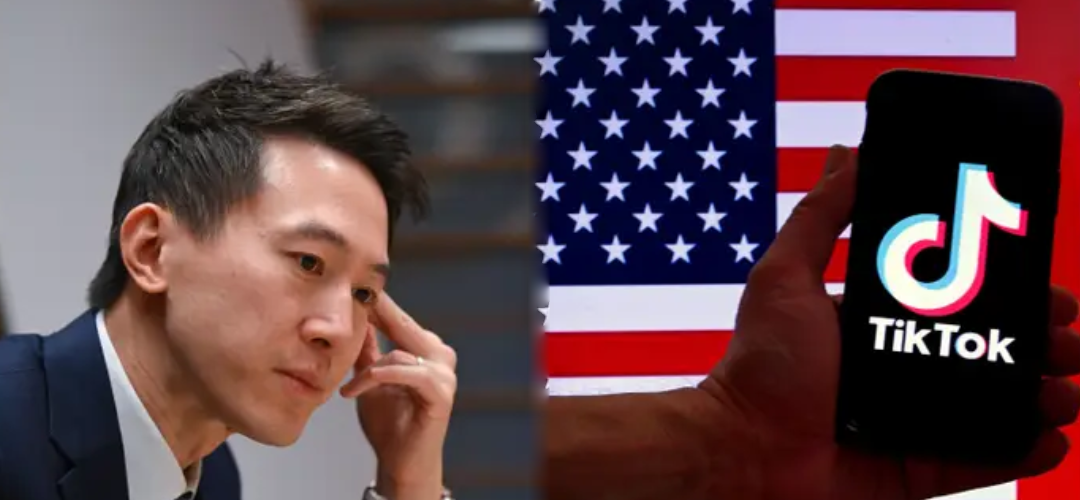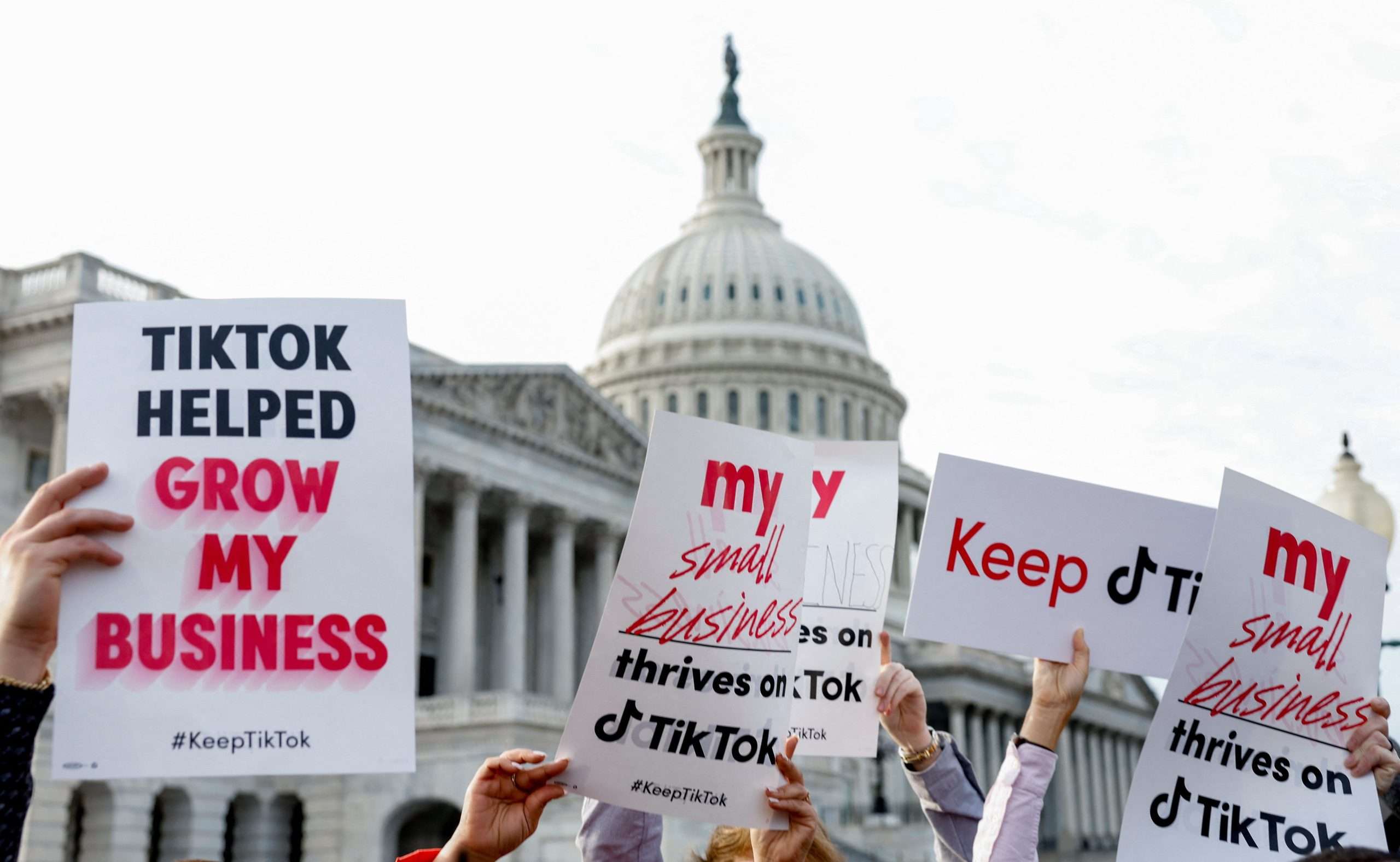The Battle Over TikTok
March 24, 2024 | Expert Insights

The international digital platform market has witnessed a significant shift in recent years. The dominance of U.S. tech giants like Facebook and Google is being challenged by the rise of platforms from other countries, most notably TikTok, a short-form video platform owned by the Chinese company ByteDance.
This rise has ignited a geopolitical maelstrom, particularly in the United States, where national security concerns have collided with rising commercial competition from foreign digital entities, threatening to overtake their American rivals.
Background
The passage of the "Protecting Americans from Foreign Adversary Controlled Applications Act" by the U.S. House of Representatives in March 2024 marks a significant escalation in the ongoing TikTok saga. If enacted, this bill would have a profound impact on the digital landscape in the United States and potentially beyond.
At the forefront of the legislation are concerns about national security. Legislators, particularly Republicans like Marco Rubio, fear that the Chinese government could exploit TikTok to access vast amounts of user data collected by the app. This data, they argue, could be used for nefarious purposes, from espionage to influencing public opinion through the platform's powerful algorithm. China's history of censorship and tight control over domestic tech companies fuels these anxieties, suggesting a potential scenario where ByteDance, TikTok's parent company, could be compelled to cooperate with the Chinese government against U.S. interests.
However, the motivations behind the bill extend beyond national security. While endorsing the legislation, the Biden administration recognizes an additional potential benefit: fostering competition within the U.S. tech sector. TikTok's meteoric rise in popularity, particularly among young users, has undeniably threatened the dominance of established U.S. platforms like Facebook and Instagram. By forcing a divestment, the government could create an opportunity for new U.S.-based competitors to emerge. This aligns with broader concerns about the concentrated power of big tech companies and the potential for innovation to stagnate in an uncompetitive environment.

Analysis
The bill's implications are multifaceted. A forced divestment would be a complex undertaking. China may be reluctant to relinquish control over a platform that has become a global phenomenon and a potential tool for shaping international discourse. Finding a suitable U.S. buyer within the tight timeframe stipulated by the bill could also prove challenging. Moreover, a ban on TikTok, a scenario some experts believe is more likely, would undoubtedly alienate millions of American users who rely on the platform for entertainment, expression, and income generation.
The battle over TikTok highlights the complex intersection of national security, economic interests, and technological advancement in the digital age. While concerns about data security and foreign influence are legitimate, a complete ban could curtail innovation and limit consumer choice. Ultimately, navigating this complex situation will require careful consideration of all stakeholders and their interests, ensuring both national security and a vibrant, competitive digital ecosystem in the United States.
The data security concerns surrounding TikTok are a central point of contention. Critics raise the spectre of the Chinese government accessing the vast trove of user data the app collects. This data, encompassing everything from browsing history and location to personal messages and even biometric identifiers, paints a detailed picture of individual users. In the hands of the Chinese state, this information could be exploited for various nefarious purposes. National security hawks fear that the data could be used for espionage, identifying U.S. intelligence agents or personnel, or even influencing public opinion through targeted manipulation of the platform's powerful algorithm.
These concerns are fuelled by China's well-documented history of government control over domestic technology companies. The spectre of a company like ByteDance being compelled, under Chinese law, to hand over user data to the state looms large. Additionally, China's extensive censorship apparatus and its restrictions on foreign internet access raise further anxieties. Critics argue that a platform so deeply intertwined with the Chinese government poses an inherent risk to U.S. national security.
However, TikTok has vehemently denied all allegations of data insecurity. The company emphasizes that user data for the U.S. market is stored outside of China, subject to robust cybersecurity protocols and oversight by U.S. authorities. They argue that their data collection practices are no different from other major social media platforms. Additionally, they point out that the company operates as a multinational with subsidiaries in various countries, including the U.S., further distancing itself from direct Chinese government control.
This is not the first time TikTok has faced such scrutiny. In 2020, the Trump administration attempted to ban the app entirely, citing similar national security concerns. However, those efforts were ultimately thwarted by the courts. This episode highlights the complex interplay between national security anxieties and the free flow of information. While legitimate concerns exist, a complete ban on a popular social media platform raises serious questions about censorship and limitations on free speech.
Researchers studying the geopolitical implications of social media platforms offer a more balanced perspective. They acknowledge the potential risks associated with data collection by foreign companies, particularly those operating from countries with a history of government control. However, they also highlight the significant benefits of competition within the digital landscape. A more diverse ecosystem fosters innovation, prevents any single company from wielding undue power, and potentially leads to better consumer products and services. The rise of TikTok has undeniably challenged the dominance of established U.S. tech giants, prompting them to innovate and adapt. The debate surrounding TikTok's data security and potential national security risks underscores the complex challenges of the digital age. Balancing legitimate security concerns with the benefits of a competitive and open internet requires careful consideration. The ultimate resolution of this issue will have far-reaching implications for the future of global digital communication.
The Indian Experience
In 2020, after the violent border standoff with China, India banned TikTok and many other popular Chinese apps. At that time, the then-U.S. Secretary of State Mike Pompeo applauded this move, saying it would "boost India's sovereignty."
The exit of TikTok from the world's most populous nation let loose over 200 million subscribers up for grabs for other platforms. Expectedly, as Indian startups grappled for a slice of the cake, they met ferocious competition from U.S. tech giants. Meta's Instagram launched "Insta Reels" in India and Google followed up with YouTube Shorts along with domestic apps like MX TakaTak and Moj.
As per CNN Business (15 Mar 24), the YouTube creative ecosystem contributed roughly $2 billion to the Indian economy in 2022.
Assessment
- The fate of the bill itself remains uncertain. While it garnered broad bipartisan support in the House, its passage through the Senate is likely more contentious. There are also potential legal challenges from ByteDance itself, who may argue that the legislation unfairly targets a foreign company.
- The coming months will likely witness a heated debate over the future of TikTok in the U.S., with the outcome having significant implications for the global digital landscape. The outcome will determine whether the desire for national security takes precedence over fostering competition and a diverse digital ecosystem.
- If TikTok loses in the forthcoming legal battles, it may have to withdraw from the lucrative American market. It is unlikely that ByteDance would be able to find a suitable U.S. buyer within the stipulated timeframe.








Comments